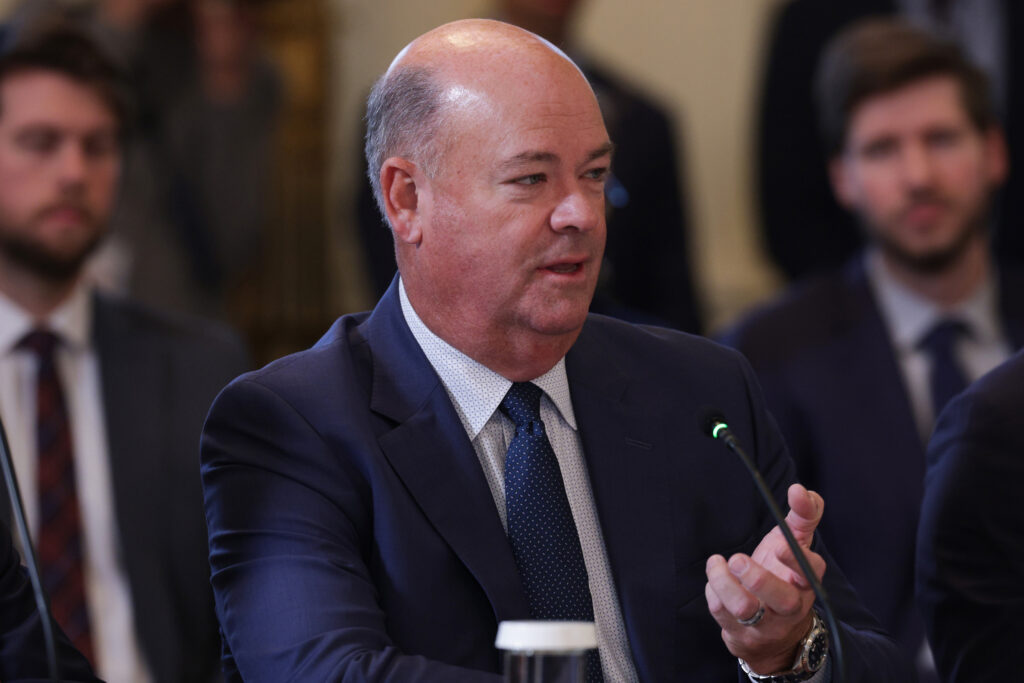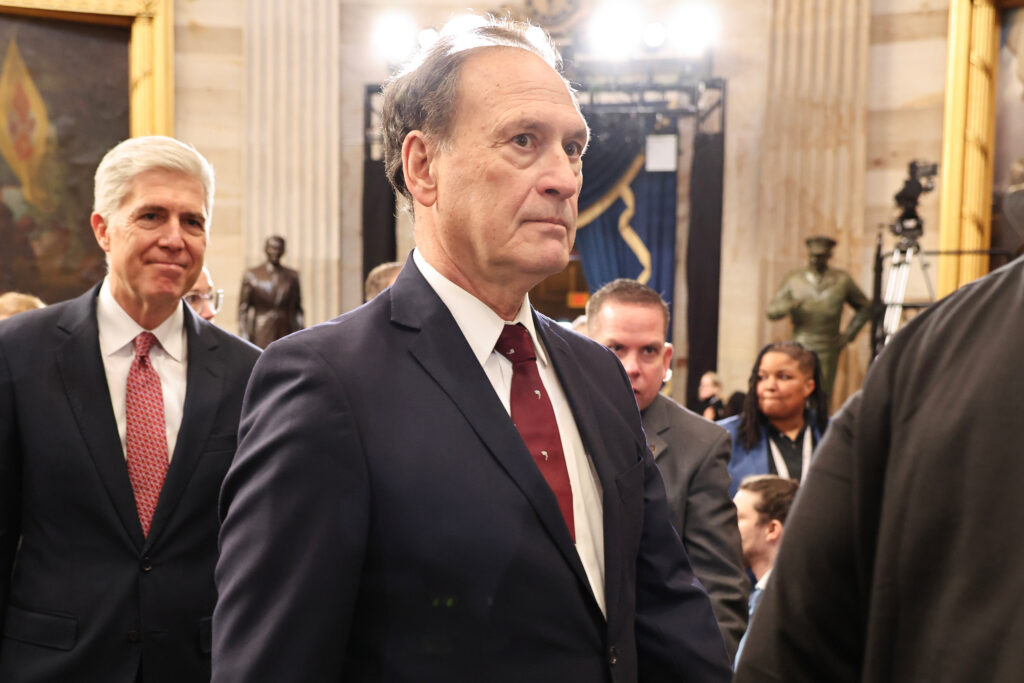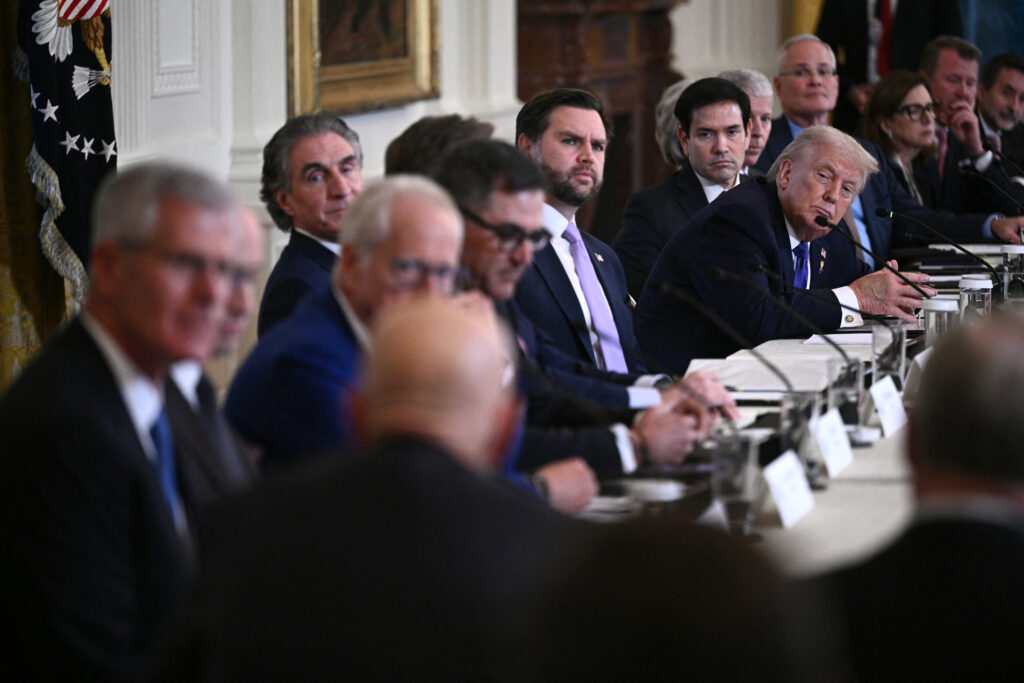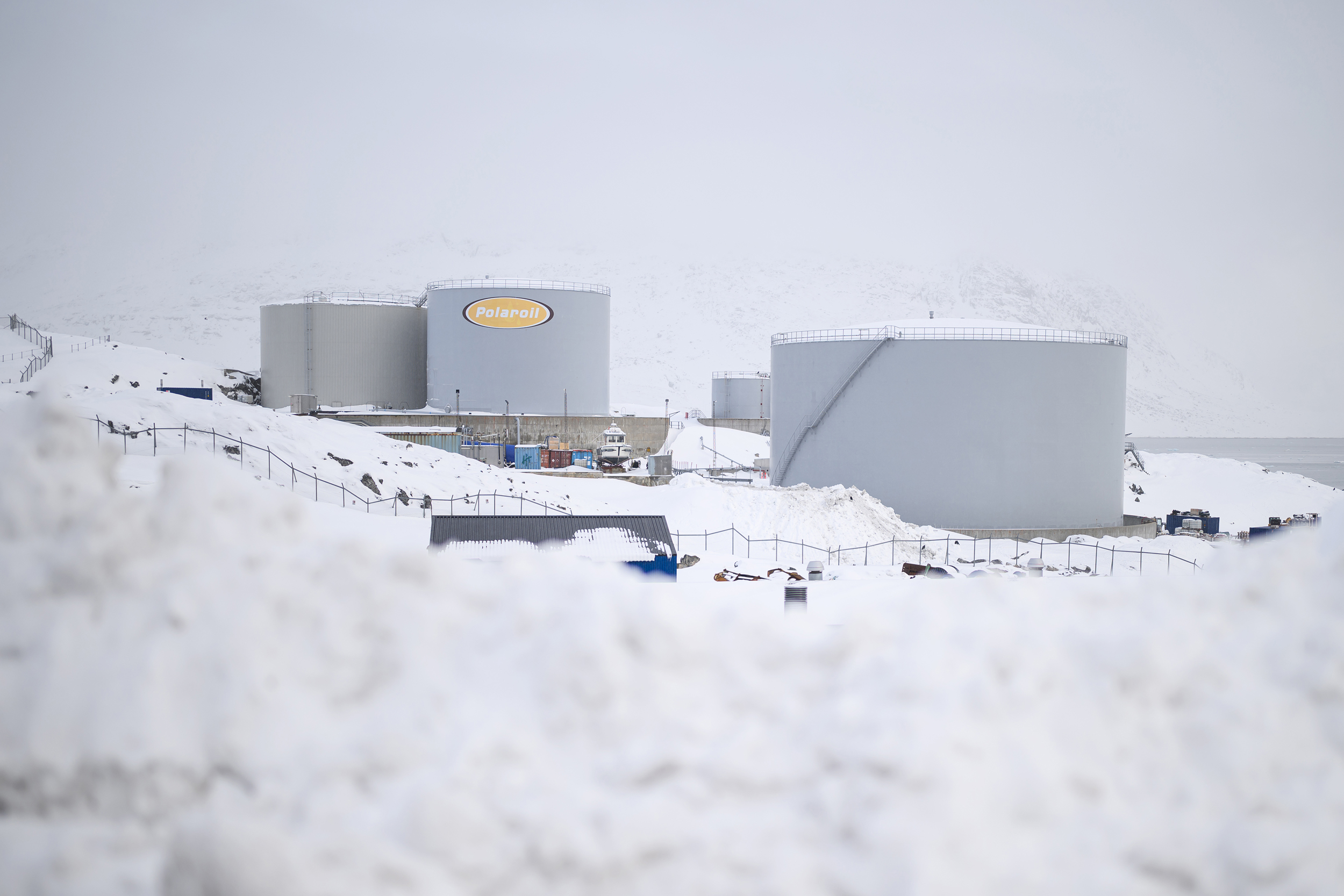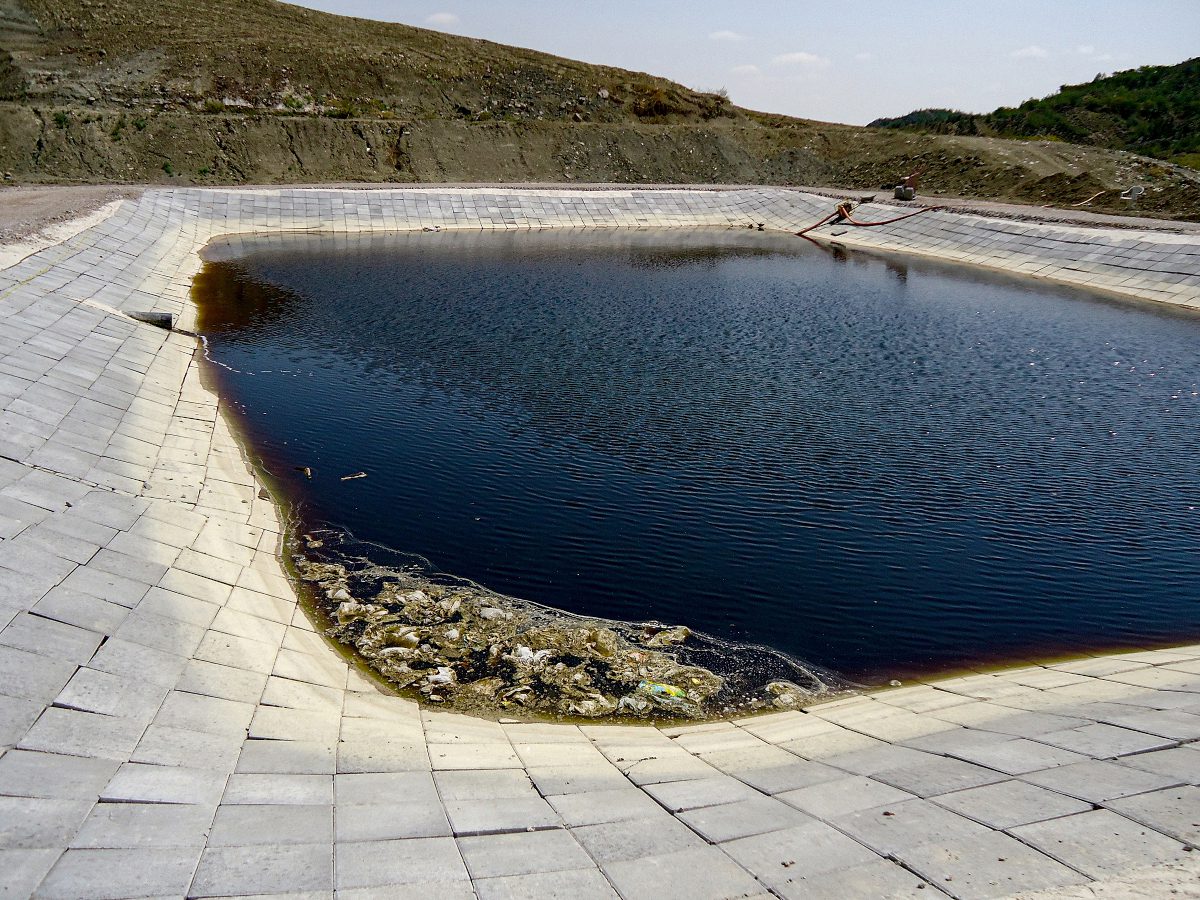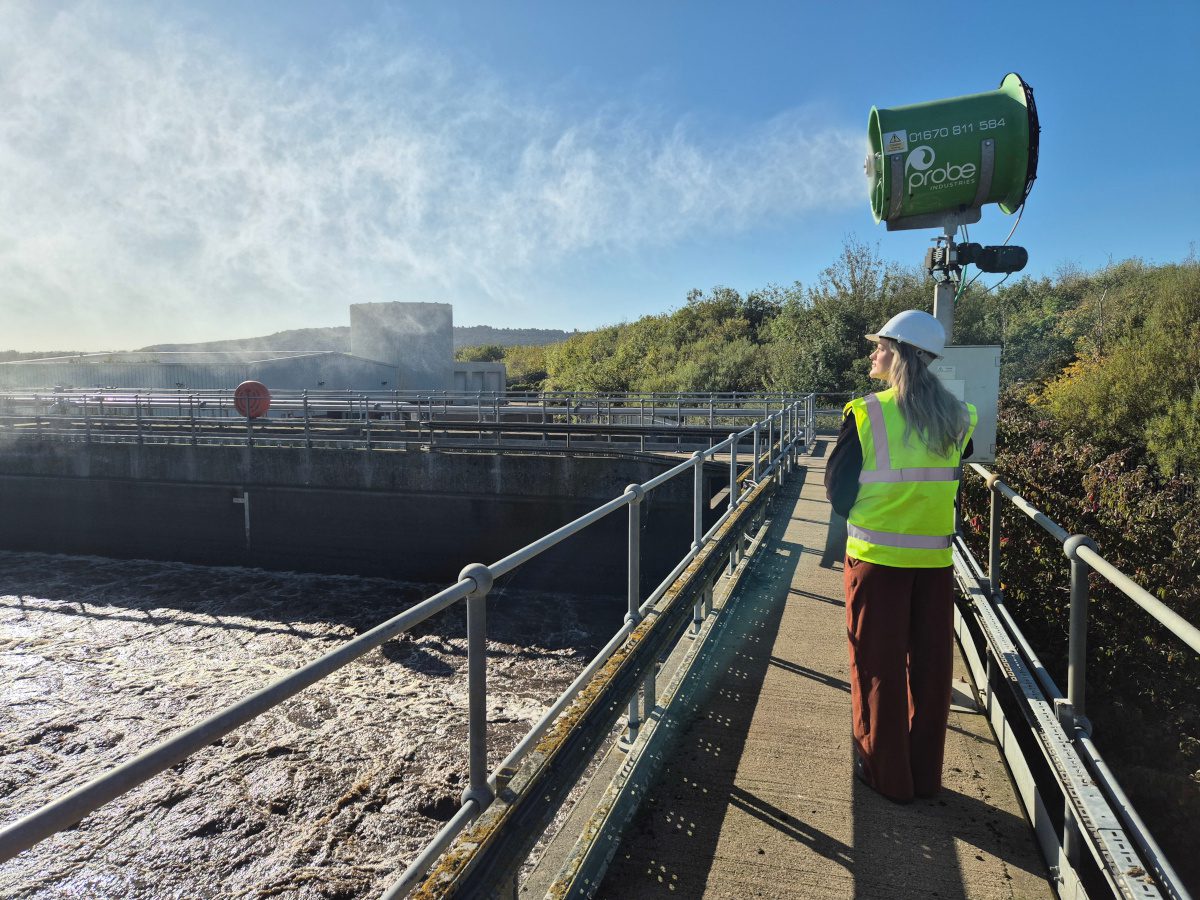Dozens of people packed into a ballroom at the glitzy Waldorf Astoria in Washington in mid-October for a “who’s who” of the conservative energy world.
For those in attendance, the America First Policy Institute’s (AFPI) Global Energy Summit simultaneously served as a victory rally for the group’s successes, a homecoming for some of its main stars and a warning cry of the threat it believes environmentalists pose to basic liberties.
That dual sense of triumphalism and foreboding danger was on display from the onset of the event.
“Around the world, governments are abusing an increasingly thin patina of environmentalism to push policies that further and further encroach on the freedoms of everyday citizens,” said Oliver McPherson-Smith, AFPI’s vice chair of energy and environment, in opening remarks.
McPherson-Smith’s dire language is nothing new for the conservative think tank, founded in 2021 in the wake of President Donald Trump’s election loss to Joe Biden.
AFPI has previously derided what it describes as “apocalyptic rhetoric” about the climate, which it says the Biden administration used as “justification for its sweeping radical agenda and massive government expansion.”
But to attendees at last month’s gathering, Trump’s return to office has brought nothing short of salvation.

“As we find ourselves in the midst of this darkness, the abyss of green socialism on a worldwide scale, there remains hope—for there remains the shining city upon the hill,” McPherson-Smith said. “Under the ‘America First’ leadership of President Trump, our nation is once again returning to, recommitting and advancing the American model of energy and environment.”
In an emailed statement, Ted Ellis, campaign director of AFPI’s “Power America” initiative and its deputy director of energy and environment, said that the inaugural summit “was designed to bring together leading experts in energy policy to discuss the most pressing issues on today’s energy landscape: affordability, reliability, and energy independence.”
“AFPI is proud of the many America-First policies advanced by the administration and cabinet officials,” Ellis said, “including policies to reverse the prior administration’s reliability-destroying subsidies for solar and wind energy and the America-last ban on U.S. LNG exports.”
Examples of that agenda were on full display as a star-studded roster of speakers, including Energy Secretary Chris Wright and Agriculture Secretary Brooke Rollins, detailed the administration’s fight against what it sees as anti-energy, anti-prosperity policies.
The two officials highlighted a mid-October effort to tank what would have been the first global carbon tax. A United Nations body, the International Maritime Organization, was on the precipice of approving rules that would have created a net-zero framework and a cap on greenhouse gas emissions from shipping vessels. Ships exceeding those limits would need to purchase carbon credits or be subjected to additional fees.
“‘It’s a foregone conclusion,’” Wright recalled hearing from one foreign energy minister whose country planned to vote for the measure.
A draft of the framework was overwhelmingly approved in April, with 63 countries voting in favor and only 16 voting against, alongside 24 abstentions—despite the U.S. abandoning negotiations.
But months of pressure from Trump led to a drastic swing in countries’ support for the measure. According to reporting by climate newsroom Grist, the administration threatened countries with tariffs, visa restrictions, sanctions and additional port fees unless they opted to abandon the deal.
Those efforts paid off in October. With the support of the U.S. and other nations, Saudi Arabia successfully introduced a proposal to postpone adoption of the net-zero framework until October 2026—this time with 57 countries voting in favor of postponement and 49 countries voting against it, with 21 abstentions.


“I will tell you that the ‘it’s going to happen’ crowd were very disappointed,” Wright said at AFPI’s summit. “That’s because of your support, your belief, your commitment to this stuff … and helping to elect President Trump and the cabinet he picked.”
For AFPI’s supporters, the Trump administration’s aggressive action on energy and the environment is no accident, but rather the culmination of meticulous preparation for the president’s second term.
In its 2022 policy book, dubbed “The America First Agenda,” AFPI rejected the “false premise that environmental progress and prosperity are antithetical goals.”
Yet it also argued that many bedrock environmental laws may need “modernization” to spur greater economic growth—including the Clean Air Act, Clean Water Act and Endangered Species Act.
AFPI has also called for an end to “outsized subsidies” of renewable energies, suggested that the Inflation Reduction Act is a threat to national security and pushed for increased fossil fuel production.
This story is funded by readers like you.
Our nonprofit newsroom provides award-winning climate coverage free of charge and advertising. We rely on donations from readers like you to keep going. Please donate now to support our work.
Donate Now
Just 10 months into his second term in office, Trump is already delivering on many of those goals.
Trump secured what critics describe as a giveaway for the fossil fuel industry in his signature One Big Beautiful Bill Act, mandating lease sales for oil and gas drilling while slashing incentives for wind and solar development.
The administration is also aiming to reverse the EPA’s key finding that greenhouse gases endanger human health, which serves as the basis for its ability to regulate emissions from motor vehicles, power plants and oil and gas operations.
And companies have merely needed to email the EPA to request exemptions from Clean Air Act regulations that limit toxic emissions from facilities like coal-fired power plants.
In May, AFPI said that the Trump administration had enacted or advanced over 86 percent of the organization’s agenda in its first 100 days.
A spokesperson for AFPI declined to answer questions asking what the group attributes its success to in achieving so many of its goals. But the answer appears to stem, in part, from AFPI’s deep ties within Trump’s inner circle.
The group was known last year as Trump’s administration-in-waiting, with the New York Times writing shortly before the election that the group was poised to be even more influential than the Heritage Foundation’s infamous Project 2025.
A year later, those predictions appear to have come true.
Rollins, who appeared at last month’s summit alongside Wright, is the co-founder and former president and CEO of AFPI. Rollins now serves on Trump’s cabinet as the agriculture secretary, despite having no substantial professional experience with agricultural policy.
Before founding AFPI, Rollins led the Texas Public Policy Foundation, another powerful political organization group that, among other conservative initiatives, has funded efforts to block wind and solar development.
Scores of other key administration officials have ties to AFPI, ranging from EPA administrator Lee Zeldin, who chaired the group’s China Policy Initiative and led its “Pathway to 2025” voter drive, to Kevin Hassett, a former AFPI board member now serving as National Economic Council Director.
Even McPherson-Smith, who provided opening remarks at the summit, briefly served as executive director of Trump’s National Energy Dominance Council and deputy assistant to the president. He previously worked as a senior fellow at AFPI, and then as the director of its Center for Energy & Environment, according to his LinkedIn profile.
According to reporting by the New York Times, AFPI’s ties to the fossil fuel industry stretch back to its inception. Rollins, along with Linda McMahon—who would go on to chair Trump’s transition team and serve as education secretary—sought the help of Tim Dunn, a billionaire and Texas oil tycoon, to found the organization in preparation for a second Trump term.
Now, five years later, they—and the fossil fuel industry—are reaping the fruits of their labor.
“We’re living in a moment in history that will be written about, remembered, and talked about for 500, maybe a thousand more years,” Wright said. “There is no doubt in my mind. And we are all part of that moment.”
About This Story
Perhaps you noticed: This story, like all the news we publish, is free to read. That’s because Inside Climate News is a 501c3 nonprofit organization. We do not charge a subscription fee, lock our news behind a paywall, or clutter our website with ads. We make our news on climate and the environment freely available to you and anyone who wants it.
That’s not all. We also share our news for free with scores of other media organizations around the country. Many of them can’t afford to do environmental journalism of their own. We’ve built bureaus from coast to coast to report local stories, collaborate with local newsrooms and co-publish articles so that this vital work is shared as widely as possible.
Two of us launched ICN in 2007. Six years later we earned a Pulitzer Prize for National Reporting, and now we run the oldest and largest dedicated climate newsroom in the nation. We tell the story in all its complexity. We hold polluters accountable. We expose environmental injustice. We debunk misinformation. We scrutinize solutions and inspire action.
Donations from readers like you fund every aspect of what we do. If you don’t already, will you support our ongoing work, our reporting on the biggest crisis facing our planet, and help us reach even more readers in more places?
Please take a moment to make a tax-deductible donation. Every one of them makes a difference.
Thank you,





